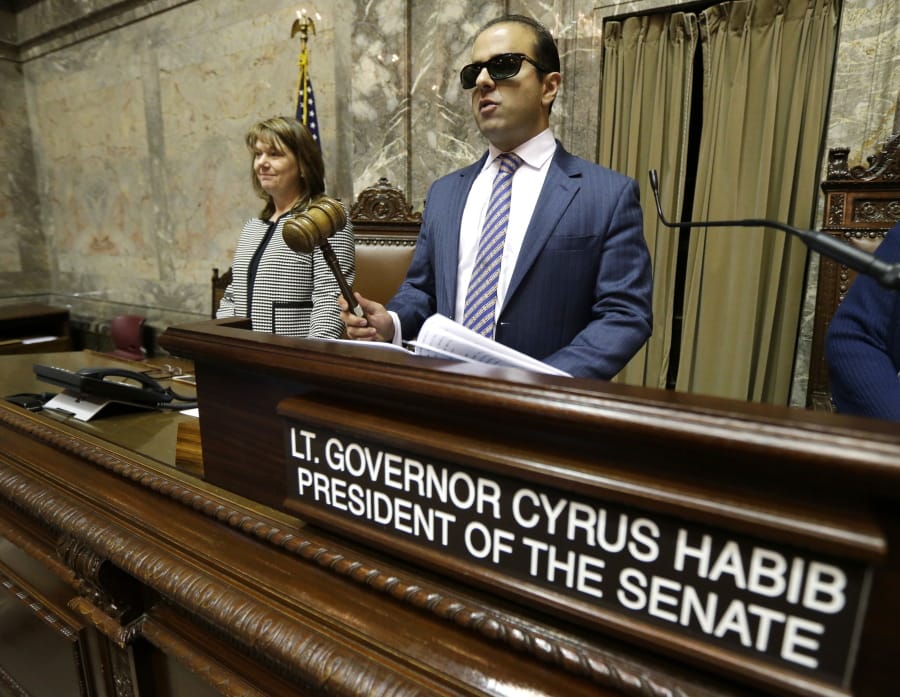OLYMPIA — The illness and subsequent death of his father. His own memories of having cancer as a child. A political culture he saw becoming increasingly toxic.
Washington Lt. Gov. Cyrus Habib said these things contributed to his decision, announced Thursday, that he would join the Jesuit religious order and not seek election to a second term. In an interview, Habib explained that the decision to change his life came after he hit a spiritual and emotional low point in recent years and increasingly began to wonder whether his political career was making him happy.
The announcement that he would join the Society of Jesus turned the heads of Washington’s political class.
It’s common for elected officials to forgo reelection to seek a more powerful public office, or maybe to leave public service for a lucrative or high-profile private job. But to suspend a rising political career to take the Jesuit vows of poverty, chastity and obedience?
“It’s rare,” said Mike Jordan Laskey, spokesman for the Jesuit Conference of Canada and the United States.
The Jesuits are the largest community of Catholic priests and brothers in the world and have about 2,200 members in those two countries, he said.
The order’s priorities include social justice and education, the latter of which Washingtonians might know from the two Jesuit institutions here: Seattle University and Gonzaga University.
Habib, 38, said he had been pondering the decision for some time. He applied to and was accepted by the Jesuit order last year.
“My intention is to be ordained,” he said. “That’s my hope.”
Elected to the statewide office in 2016, Habib had previously served as a state representative and senator from Bellevue. He’s a Rhodes scholar, Yale Law School graduate, attorney and law professor.
When his father was diagnosed with cancer in 2013, it “really, really rocked my world,” said Habib, who sought out his priest at Seattle’s St. James Cathedral, where he attends. The priest recommended a book by James Martin, a Jesuit writer and academic titled “The Jesuit Guide to (Almost) Everything.”
“I didn’t know anything about what it meant to actually become a Jesuit,” said Habib, who then started exploring more.
The death of his father in late 2016 led to a “real low point for me, emotionally and spiritually” in 2017 and 2018, Habib said. He mused on the sadness over his father, his recollections of childhood cancer — which cost Habib his eyesight — and the coarsening of the political culture.
Those feelings came soon after Habib won election as lieutenant governor in November 2016, cementing his distinction of being the highest-ranking Iranian American elected to public office anywhere in the United States.
“From that place, that low point, I started to really reevaluate and start to really think, is this actually making me happy?” he said. Later, when he had a chance to meet with the Dalai Lama, Habib said he felt a peacefulness he had sensed in rabbis, priests and other clerics.



